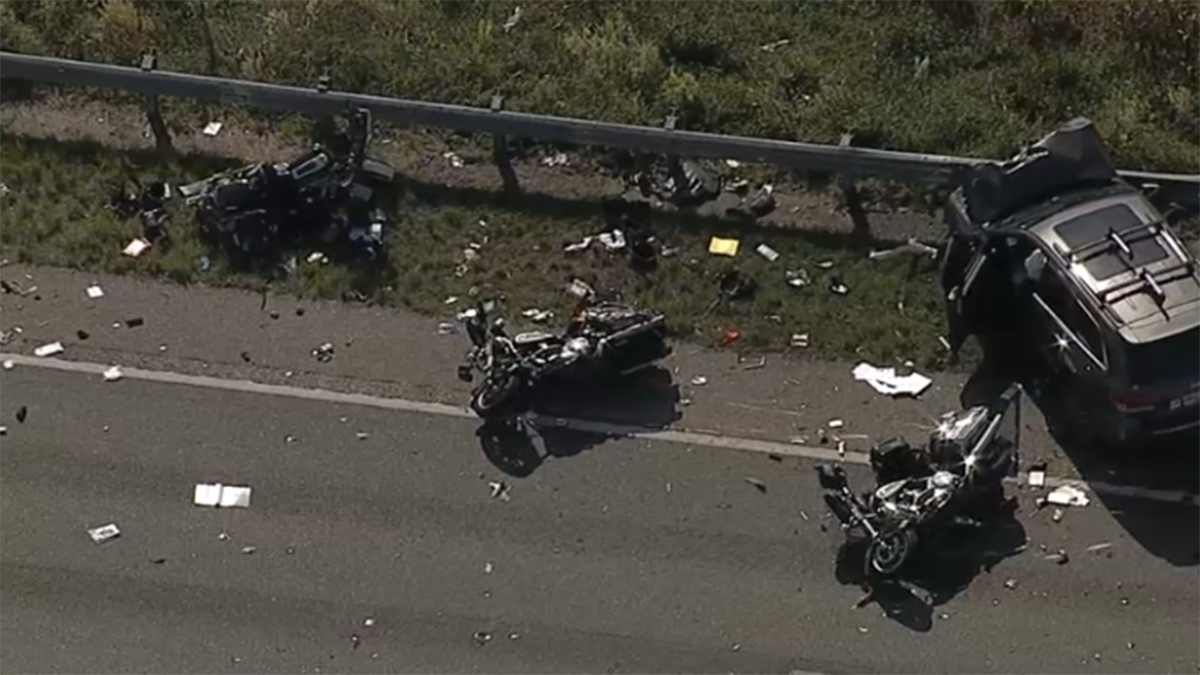Gov. Ron DeSantis on Thursday supported a House proposal that he said is designed to limit "bad-faith objections" to school-library books and instructional materials, and called claims that Florida bans books a "false narrative."
During a news conference Thursday in Orlando, DeSantis said Florida doesn't ban books but has allowed parents and others to object to certain material. But DeSantis said some have abused the process to "score cheap political points."
Watch NBC6 free wherever you are
“A lot of the things that people say in the media that were, quote, 'objected to,' were actually on the summer reading list of the Florida Department of Education, so this is all a big fraud,” DeSantis said.
The issue of school-book scrutiny has been a political battleground in Florida in recent years. The Legislature and DeSantis since 2022 have approved measures that eased the process for people to object to books and other materials.
Get local news you need to know to start your day with NBC 6's News Headlines newsletter.
The Parental Rights in Education Law was a priority of the DeSantis administration a couple of years ago. The "Don’t Say Gay" law did a number of things, including creating a system in which anyone could challenge a book inside any public school for almost any reason. That book would have to be pulled from the shelves, evaluated by the school district, and then it would be either returned to the library or removed permanently.
A House bill (HB 7025) includes imposing $100 “processing” fees for unsuccessful book objections. The proposed fees would apply to people who do “not have a student enrolled in the school where the material is located” and have “unsuccessfully objected to five materials during the calendar year.”
Local
During the news conference, DeSantis criticized some book objections.
“Likewise, members of the community, although we like people wanting to be involved in what’s going on, to just show up and object to every single book under the sun, that is not an appropriate situation here. And we have seen that occasionally,” the governor said.
According to a House staff analysis of the bill, Florida had 1,218 book objections during the 2022-2023 fiscal year, resulting in the removal of 386 books, with the vast majority coming in Clay and Escambia counties.
The governor also appeared to endorse part of the bill that would exempt from the potential fees parents of students in schools where books face objections.
"If you have a kid in school, OK. But if you’re somebody who doesn’t have a kid in schools and you're going to object to 100 books — no, I don’t think that that’s appropriate,” DeSantis said.
The bill, which also deals with other education issues, is positioned to go before the full House after getting approval from three panels. Meanwhile, similar Senate bills do not include book-objection fees.
At the news conference, they played a video supporting the state’s book challenge policy as a parental empowerment system. It highlighted sexually explicit sections of several books, arguing they have no place in any school’s collection.
"We obviously have to give parents the ability to be able to ensure that this smut doesn't get into their schools," DeSantis said.
DeSantis also said reports that books like "Romeo and Juliet" and the biography of Roberto Clemente had been banned are false, and said the Clemente book had even been on the education department's "Book of the Month" list.
“We have to empower parents, at the same time, to just have random people come in who don’t even have kids in the school system and just start objecting to things just to gum up the works, that is not something we should be incentivizing in this state,” DeSantis said, reiterating that the state is not banning appropriate books.
DeSantis may have been referring to one man who has objected to dozens of books in Central Florida school districts.
“It’s really up to the parent and the child, the guidance comes from the parents,” said retired librarian, David Brostrom.
He is active in Florida’s “Right to Read” movement. Brostrom objects to the state’s book challenge process because he says it gives one parent power over another parent’s children, and says book selection should be left up to the pros.
“They are doing it as masters degreed professional librarians, trained to pick the right things, they don’t want to ruffle feathers, they just want to get books out that are new and compelling and will make the kids big readers,” Brostrom said.
Around the state, hundreds of titles have been pulled from school shelves, at least temporarily. In Broward County, as an example, someone objected to an animated children’s book called, “A Day in the Life of Marlon Bundo,” and in Miami-Dade, a parent infamously objected to a poem by Amanda Gorman.
The United Teachers of Dade released a statement saying in part, “Governor DeSantis claiming books are not banned is second place in the re-writing of history after his 'Slaves benefited from slavery' curriculum standards. Here in Miami, we saw how one racist woman got a poem by Amanda Gorman 'relocated,' Furthermore, banning books on Celia Cruz and Roberto Clemente are having a reverse effect because now parents are seeking out these books.”
DeSantis is asking the legislature to “fine-tune the process” to prevent what he calls activists from saddling school districts with unnecessary work. So his critics are saying that’s an admission that the system went too far, as they argued from the beginning.



